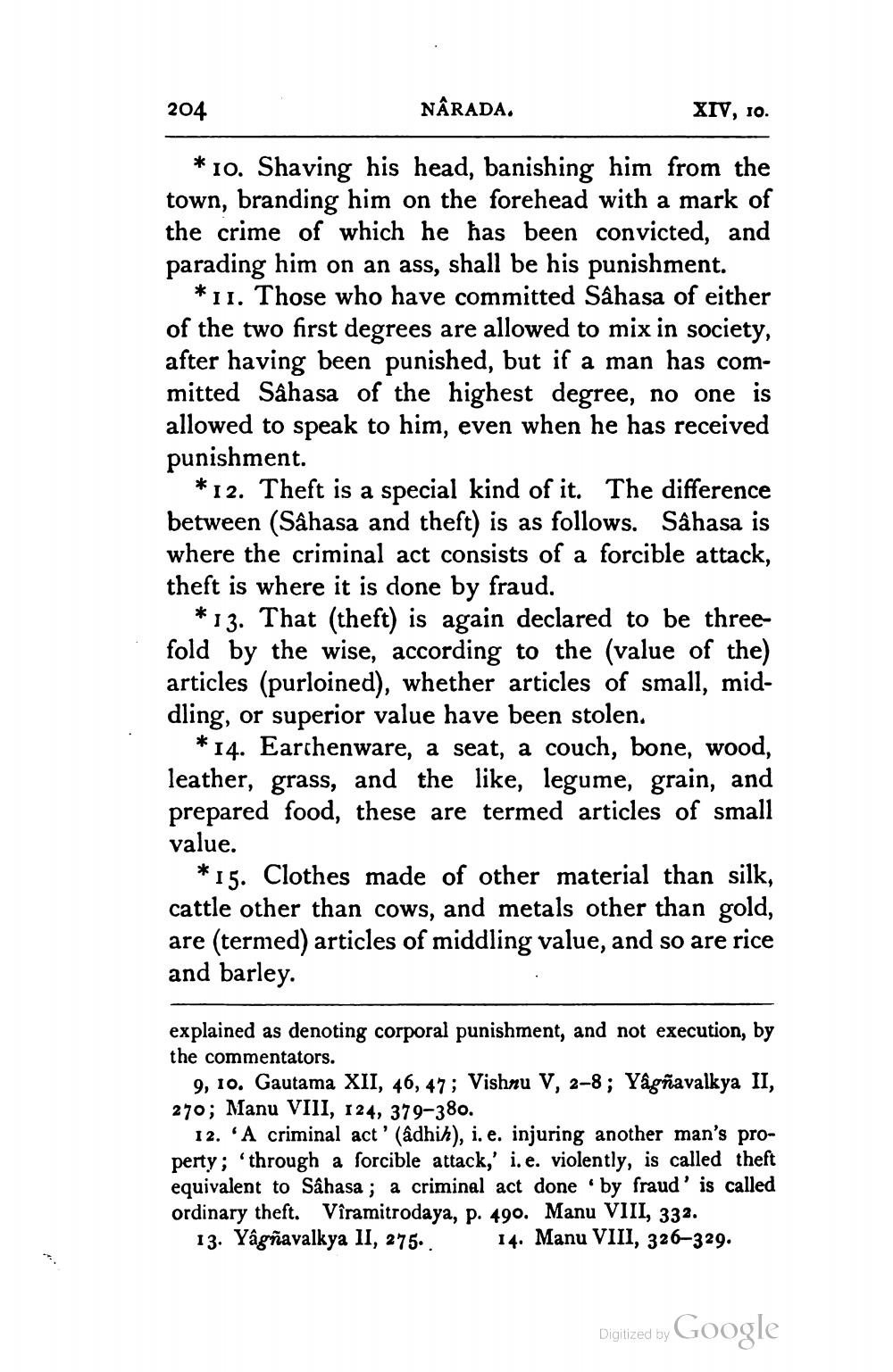________________
204
NÂRADA.
XIV, 10.
*10. Shaving his head, banishing him from the town, branding him on the forehead with a mark of the crime of which he has been convicted, and parading him on an ass, shall be his punishment.
*11. Those who have committed Sahasa of either of the two first degrees are allowed to mix in society, after having been punished, but if a man has committed Sahasa of the highest degree, no one is allowed to speak to him, even when he has received punishment.
*12. Theft is a special kind of it. The difference between (Sâhasa and theft) is as follows. Sâhasa is where the criminal act consists of a forcible attack, theft is where it is done by fraud.
*13. That (theft) is again declared to be threefold by the wise, according to the (value of the) articles (purloined), whether articles of small, middling, or superior value have been stolen.
*14. Earthenware, a seat, a couch, bone, wood, leather, grass, and the like, legume, grain, and prepared food, these are termed articles of small value.
*15. Clothes made of other material than silk, cattle other than cows, and metals other than gold, are (termed) articles of middling value, and so are rice and barley.
explained as denoting corporal punishment, and not execution, by the commentators.
9, 10. Gautama XII, 46, 47; Vishnu V, 2-8; Yâgñavalkya II, 270; Manu VIII, 124, 379-380.
12. 'A criminal act' (adhih), i. e. injuring another man's property; through a forcible attack,' i.e. violently, is called theft equivalent to Sahasa ; a criminal act done by fraud' is called ordinary theft. Vîramitrodaya, p. 490. Manu VIII, 332.
13. Yâgñavalkya II, 275. 14. Manu VIII, 326–329.
Digitized by Google




